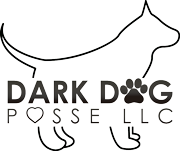The motivation for starting Happily Furever After Rescue in Bethel, Connecticut came from “a big ole’ pittie” named Tyler. Tyler was at Best Friends Animal Society in New York City for nearly three years before the founder of Happily Furever After Rescue, Jaclyn Gartner, decided to take him home in September 2017. He was the dog that no one wanted—adopted and returned multiple times—but Jaclyn gave him the chance that no one else would…and it changed her life. Here’s what Jaclyn had to say about starting a rescue and why saving animals is important.
Tell us about Happily Furever After Rescue.
Happily Furever After Rescue was started on passion and the desire to make a difference. All of us are volunteers, so we do what we do out of the goodness of our hearts. To me, it’s not just a volunteer role, but it’s my life…my purpose.
And it all started with Tyler?
Yes! My life changed the day I rescued him—he was the true definition of resilience. And while our time together was not nearly enough (he passed in 2021 from cancer at just seven years old), he truly left a legacy on this world, and everything I do each and every day is for him. I knew I had to do something to help other animals like him.

Tell us about the evolution of the rescue.
I was heavily involved with my local animal shelter for a few years before starting my own nonprofit. Being that I was already wearing so many hats within that organization, it was a seamless transition to starting my own, although I tend to still learn something new each and every day. I rescue animals locally but also from various kill shelters across the country.
You have a section on your website that recognizes your volunteers each month. What made you think of that?
Being that Happily Furever After Rescue is 100% volunteer, I thought it was important to recognize those who help keep us running. Without our volunteers and fosters, there would be no rescue. As someone who volunteered in a shelter for several years with rarely any recognition, I wanted to make sure my volunteers felt valued for their efforts.
Tell us about the services you provide.
We are a small, foster-based rescue organization. We not only adopt out cats and dogs but also support the community in rehoming their pets, help good Samaritans who find lost animals, and provide financial assistance to pet owners in times of need.

Your website shows how the cost of adopting is actually less expensive than buying from a breeder. Why is that important?
I think it’s important to highlight the adoption fee versus vetting costs because it truly shows the value in rescue animals and hopefully encourages others to #adoptdontshop. I think there are a lot of misconceptions about what an adoption fee actually is and there are some people who believe that rescues are selling or profiting off of animals, which is far from the truth.
How can others help your rescue or get involved?
I preach the motto that “everyone can do something.” If you can’t adopt, foster. If you can’t foster, donate. If you can’t donate, educate. We all have the ability to make a difference in some capacity.
Is there anything that sets you apart from other animal rescues/shelters?
I like to help the ones that no one else will, especially the bully breeds and larger dogs as they’re always harder to place. We have helped save dogs that have been in the shelter for years, like my current foster dog, Marco, who was in the shelter for 17 months before I rescued him.

Is there a story or some significance behind your rescue’s name or logo?
My rescue name came from incorporating two of my greatest interests, animals and Disney! I strive to find homeless pets their “happily furever after” and Happily Ever After just so happens to be one of my favorite fireworks shows at Disney World!
Is there anything else you’d like to add?
My rescue was started because I took a chance on a dog that no one wanted. When looking for your next furry friend, keep an open mind and don’t just look for that “perfect pet” because I guarantee they’ll be worth it!


Thank you for intaking large dogs who are often passed over.